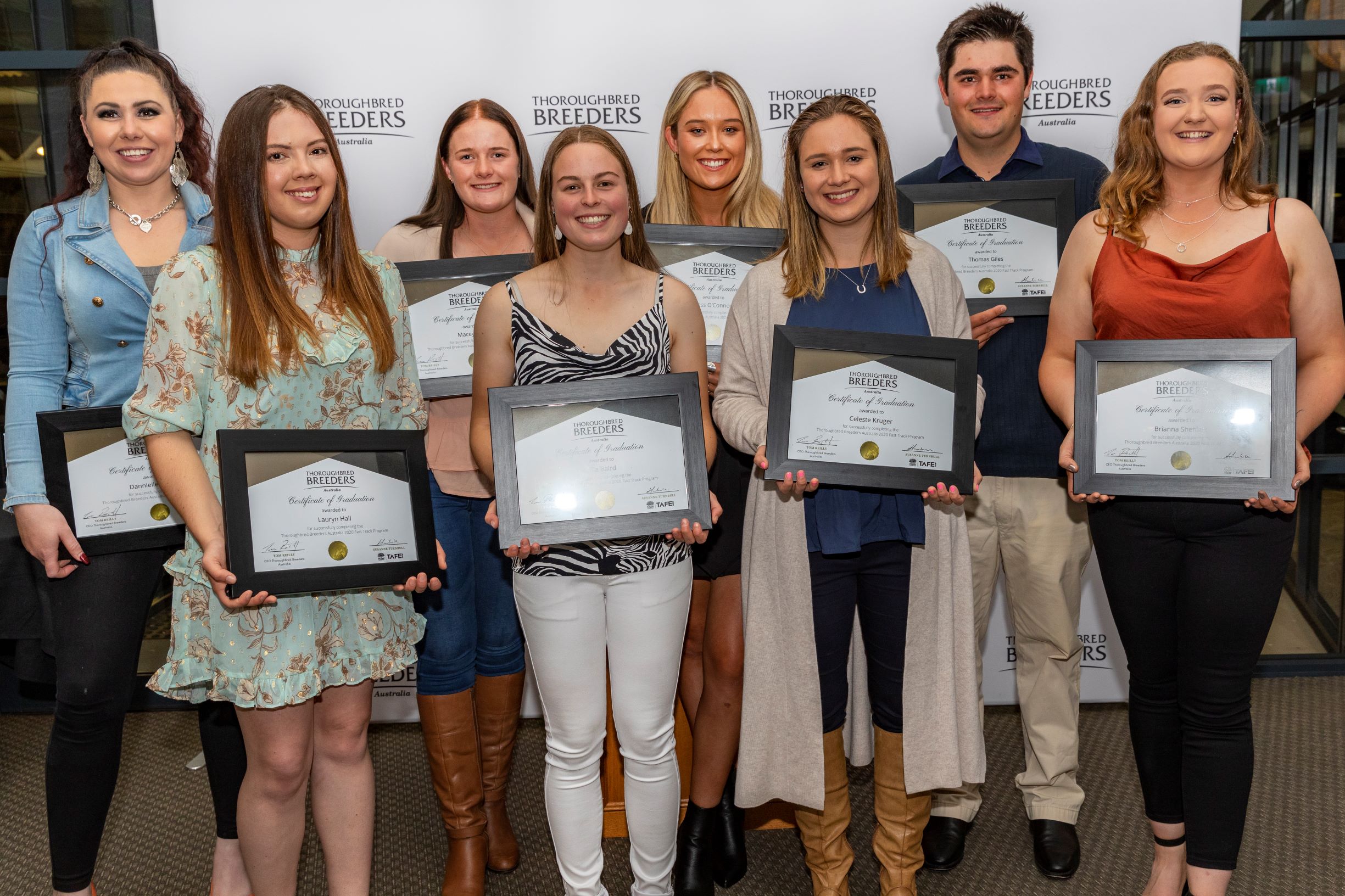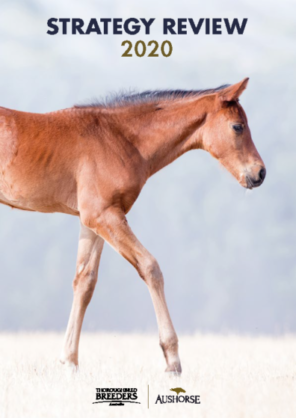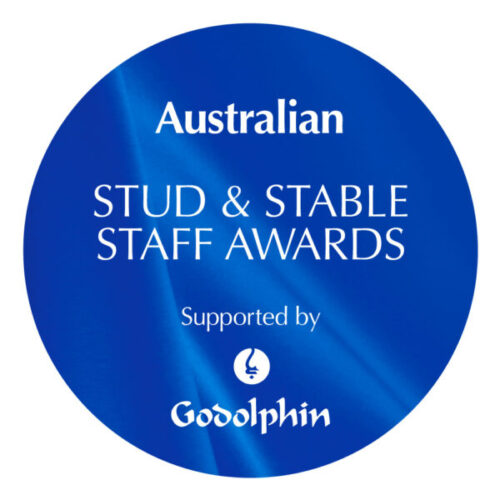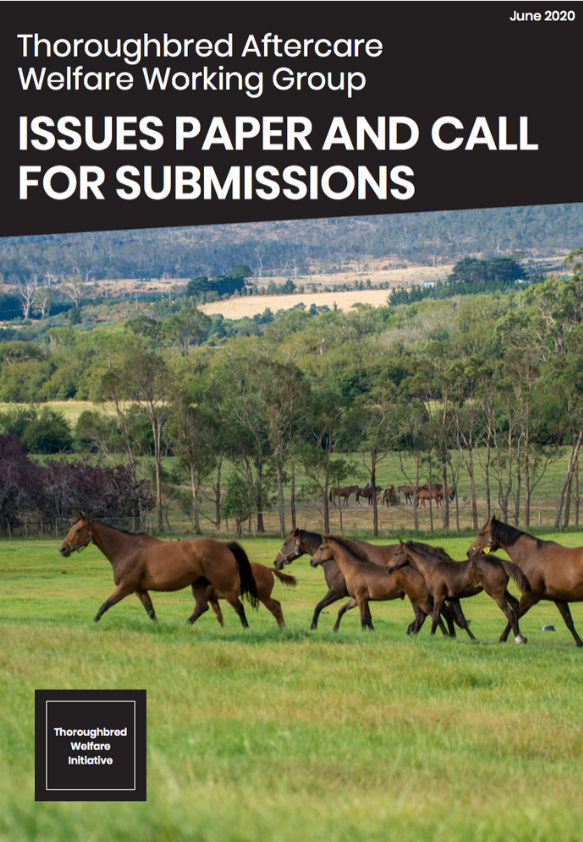An article in Monday’s edition of TDN AusNZ raised the important issue of traceability and new rules that will require breeders to provide more timely information on the status of their horses, such as change of ownership or location.
In that piece, former Racing Australia chairman and Arrowfield principal John Messara reflected on the introduction of Foal Ownership Declarations in 2016, a change that brought in increased obligations on breeders to notify where an unnamed horse was located and its ownership details. These were an important first step in increasing traceability within the breeding sector.
Before I go on to discuss Mr Messara’s comments, it is worth reflecting on his enormous contribution to the Australian thoroughbred industry. A totemic figure, he has dedicated vast amounts of his time and energy to improving breeding and racing in this country, and I do not believe there is any director of Thoroughbred Breeders Australia or Aushorse, who would say the legacy of those efforts have not been positive.
But Mr Messara’s reflections on the introduction of foal ownership declarations do not align with those of the TBA or Aushorse directors involved in those discussions, or myself. More importantly, his comments do not reflect the genuine concerns the majority of breeders had with Racing Australia’s (RA) initial proposal (read more here). As we were not contacted by TDN AusNZ for a comment in relation to this story, the boards of TBA and Aushorse feel it is important to clarify the record.
Those concerns related to RA’s attempt to bring all breeders under the rules of racing for their breeding activities, something not mentioned in Monday’s article. The view of TBA was that regulation for breeding should be carried out through the rules of the Australian Stud Book (ASB), the body that had overseen breeding in this country for over a century.
Having spent significant sums defending the authority of the ASB in a legal challenge over its ban on artificial insemination, TBA was well placed to know that the stud book has the power to compel adherence to its rules, with the threat that any breaches may prevent a breeder not being able to register horses.
Another concern was that making all breeders subject to the rules of racing would see Racing Australia, a body that has no representation from our industry, have the authority to make rules without proper input from our sector.
The claim that “the proposal to introduce traceability rules was met with fierce opposition from breeders… led by the Thoroughbred Breeders Association” is misconceived. Did TBA oppose Racing Australia’s proposal to bring breeders under the rules of racing? Yes. Did we oppose reform to improve traceability? Absolutely not.
In fact, rather than stymie reform, TBA made a proposal in 2016 to RA that went far beyond what was being considered, or since adopted, by RA in relation to welfare and traceability (read proposal).
In a document sent to Mr Messara in April 2016, TBA proposed the creation of clearer rules on welfare and traceability, and that any significant breaches of these rules should result in suspension or disqualification preventing breeders from registering a horse in the ASB.
And rather than the TBA fearing breeders would be “subject to constant scrutiny by the stewards”, our proposal actually called for the establishment of specialist stewards to oversee breeding matters. These were to be called Stud Book Stewards and they would have in-depth knowledge of breeding, rather than racing.
We wrote that their responsibilities should include: investigating breaches of traceability and welfare rules; advising and educating on best practices for equine welfare; liaising with animal welfare, industry and government bodies; and referring breaches of the rules to a panel to issue penalties.
Monday’s piece also stated, “We (RA) were right to withstand their opposition in 2016,” suggesting they faced down opposition to carry through their reforms.
In actuality TBA supported the reforms as introduced. They were announced in a joint press release (read here) from TBA and RA in September 2016 in which Mr Messara said: “It is pleasing that the matter has finally been resolved with the TBA.” In the same release Basil Nolan, TBA’s president, said: “We have come to an agreement with Racing Australia… and we look forward to carrying on this consultative relationship.”
What occurred before this announcement was that RA made important concessions around the issue of the rules of racing – clarifying that breeders would only be under the rules that related to welfare and traceability – and it was then that TBA agreed to the proposal. We did so, despite legal opinion stating racing administrators did not have the authority to regulate breeding, because we recognised the benefits of traceability reform.
My own reflections on this issue are that TBA did the job it was established to do some 102 years ago: to represent the best interests of breeders and advocate effectively on their behalf.
Could the introduction of these rules been better handled by all? Undoubtedly. Is it regrettable that relationships were damaged by this issue? No doubt. Were the rules ultimately introduced better than those first put forward? Definitely.
All of this, of course, occurred some five years ago. And as an organisation TBA is concerned with the present and the future, rather than raking over old coals.
I’m pleased to say that the new traceability rules coming in on May 1 were the result of open and collaborative dialogue with RA, including their current chairman Greg Nichols. This process allowed TBA to understand the issues RA were seeking to address, as well as providing them with insight into how changes would impact on breeders. We value this relationship with RA.
But TBA does not sit back and wait to comment on others’ proposals. On the issue of improving equine welfare, no organisation has done more in championing reform.
In 2018 we organised and funded two workshops on welfare, where leaders from the thoroughbred industry (including executives from Racing Australia and all principal racing authorities) could hear from leaders in other sectors on how they met their social responsibility challenges.
Among the topics presented and discussed were: the changing view of racing in the mass media; an account from inside government on the live export scandal and the impact of activism; how Dairy Australia led reform of industry practices to address welfare concerns; what the greyhound industry learned from the live baiting scandal; and how the big brewers put aside their rivalries to form Drink Wise.
At the second of these workshops in December 2018 a proposal was agreed to which would have seen the racing and breeding industry jointly fund a major review, to be carried out by external experts, to highlight our biggest challenges in the welfare and sustainability space.
However, when the proposal was later discussed by RA directors, it was unable to get the support of enough racing authorities to proceed.
While this review may not have prevented the ABC’s damaging 7.30 report into horseracing, it would certainly have put the industry on a surer footing in its response to the issues raised in that program.
In the aftermath of that show TBA again were at the forefront of the debate, publicly calling for an independent and expert review into welfare in racing and breeding, so that all could have their say on improving our industry.
In a meeting with Greg Nichols and then RA chief executive Barry O’Farrell five days after 7.30 aired we urged them to take the lead on this inquiry, and made clear that TBA would make a significant contribution to the costs of forming such an expert panel.
Despite the efforts of the chairman, there was not enough support at Racing Australia to set this body up.
When it was clear Racing Australia could not take the lead on this challenge, TBA was able to pull together a broad coalition of groups – from Tabcorp, through to race clubs and peak bodies – to establish and fund an independent welfare review, the Thoroughbred Aftercare Welfare Working Group (TAWWG).
On the announcement of the review federal Agriculture Minister, David Littleproud, said: “I applaud industry for taking the reins and leading from the front… The initiative will improve industry transparency and ultimately improve animal welfare.”
I am pleased to say the TAWWG, which is being chaired by former Victorian premier and veterinarian Dr Denis Napthine and includes RSPCA Australia, will soon be handing down its final report.
The response to their work has been overwhelming. More than 180 people or organisations have made submissions with their suggestions on how to improve the industry: many of these have come from the most senior figures from racing and breeding, including champion trainers, major studs and every racing authority.
I strongly believe the panel’s final report will provide a valuable framework for industry participants, regulators and governments on how racing and breeding ensures the safety of its key participants, its horses, and retains the support of the public at large.
For that reform to take place will require collaboration and open and honest engagement from all the major players in racing and breeding. TBA will be ready to play its role in that debate and we look forward to engaging will all who want to be involved.




